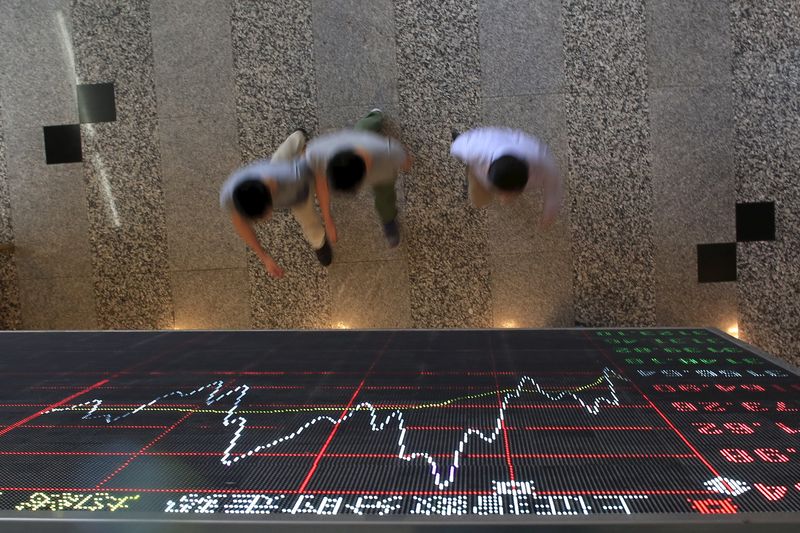Nvidia and TSMC to unveil first domestic wafer for Blackwell chips, Axios reports
Investing.com -- China’s stock market has staged a powerful rebound recently, but the rally is "masking underlying cracks" in the world’s second-largest economy, analysts warn.
The Shanghai Composite has climbed 20% since an April selloff and is up more than 11% year-to-date (YTD), recently closing at its highest level in a decade.
Investors appear to be betting that President Donald Trump’s trade threats will not fully materialize, but market research firm Yardeni Research cautions that such optimism may be misplaced.
“The dubious assumption investors seem to be making plus the nation’s underlying economic troubles could mean that China’s stock market bulls are operating on borrowed time,” said Ed Yardeni, President of Yardeni Research.
The report warned that if Chinese leader Xi Jinping fails to strike a “grand bargain” trade deal, tariffs could rise well above the current 30%, posing another blow to growth.
The economic backdrop is already weak. July retail sales rose just 3.7% from a year earlier, the slowest pace since December, while industrial output grew 5.7%, an eight-month low. Fixed-asset investment dropped sharply, with property investment down 12% in the first seven months of the year.
At the same time, China’s 100 biggest developers saw home sales plunge more than 20% in both June and July, underscoring a prolonged property slump. Deflation has re-emerged, and home prices have been falling year-on-year since spring 2022.
Adding to investor unease, China Evergrande (HK:3333) will be delisted from Hong Kong this month, reviving memories of its 2021 default. The firm’s collapse has heightened fears of “Japanization” — a drawn-out period of stagnation similar to Japan’s lost decades.
“The ongoing challenges in the real estate sector, though anticipated, are still concerning due to the sector’s critical role in driving consumption through wealth effects, particularly as 60% of domestic household wealth is tied to real estate,” Carlos Casanova of Union Bancaire Privée said.
Yardeni also stressed that many of China’s current troubles bear Xi Jinping’s imprint. His earlier crackdown on technology firms and property leverage has fed investor concerns about whether China has become “uninvestable.”
The leadership’s reliance on stimulus rather than structural reform was compared to Warren Buffett’s maxim that “only when the tide goes out do you discover who’s been swimming naked.”
The 2015 crash still looms large in memory, when Shanghai shares lost roughly a third of their value in just three weeks after Xi’s promised reforms failed to materialize.
Despite government pledges of support, the risks remain. Investors have been emboldened by expectations of further easing, but as Yardeni concluded, this may be “a buyer-beware moment,” given the worsening economic fundamentals that could undermine earnings and valuations.
